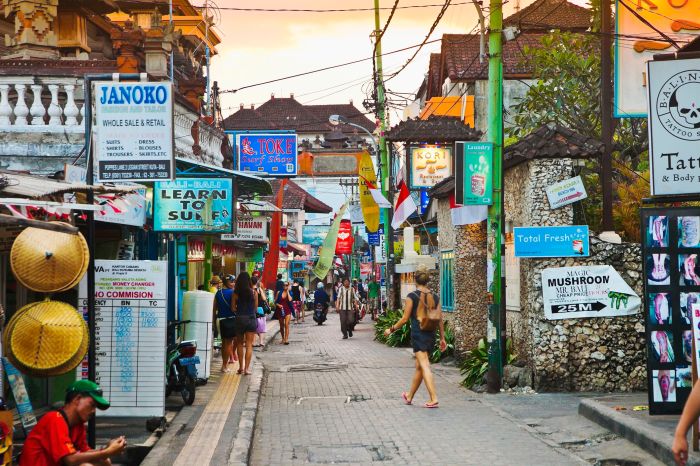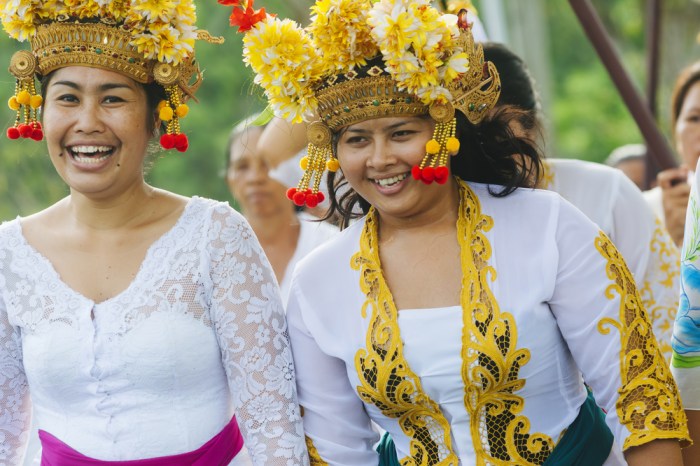Bali Time, a unique and intriguing time zone, invites travelers to immerse themselves in the island’s distinctive rhythm. Its offset from Coordinated Universal Time (UTC) and the absence of daylight saving time create a timekeeping experience that is both enchanting and practical.
Delving deeper into the cultural significance of time in Bali, we uncover how it influences daily life, religious ceremonies, and social interactions. Understanding Bali Time is not just about adjusting to a different time zone, but also about embracing the island’s unique approach to time.
Bali Time Zone

Bali, an Indonesian province and popular tourist destination, operates on the Central Indonesia Time (WITA) zone.
Bali time, a concept of relaxed and unhurried living, aligns with the growing emphasis on sustainable travel destinations. As travelers seek out experiences that prioritize environmental conservation and local well-being, Bali offers a harmonious blend of cultural immersion and responsible tourism.
From eco-friendly accommodations to community-based initiatives, Bali invites visitors to embrace a mindful and sustainable approach to their travels, preserving its natural beauty and cultural heritage for generations to come.
WITA is 8 hours ahead of Coordinated Universal Time (UTC), making it the same as China Standard Time (CST) and Western Indonesian Time (WIB).
Time Difference

Bali, officially known as the Province of Bali, is located in the Lesser Sunda Islands, Indonesia. Its unique culture and stunning natural beauty attract tourists worldwide. Understanding the time difference between Bali and major cities helps plan itineraries and communicate effectively during your travels.
Bali’s time zone is Waktu Indonesia Tengah (WITA), which is 8 hours ahead of Coordinated Universal Time (UTC) and 7 hours ahead of Western Indonesian Time (WIB). This means that when it is noon in Bali, it is 4:00 AM UTC and 5:00 AM WIB.
Time Difference from Bali, Bali time
The following table shows the time difference between Bali and several major cities worldwide:
| City | Time Difference |
|---|---|
| New York City | |
| London | |
| Paris | |
| Tokyo | |
| Sydney |
Note that daylight saving time (DST) may affect the time difference during certain periods of the year.
Daylight Saving Time

Bali does not observe daylight saving time (DST).
Historically, Bali has never implemented DST. The island’s location near the equator results in minimal seasonal variations in daylight hours, making DST unnecessary.
Cultural Impact

Time plays a pivotal role in Balinese culture, shaping daily life, religious practices, and social interactions. It is not merely a measure of duration but a sacred concept deeply intertwined with the island’s traditions and beliefs.
Religious Ceremonies
Time holds immense significance in Balinese religious ceremonies. The Balinese Hindu calendar, known as the Pawukon, dictates the timing of all major ceremonies and festivals. Each day is assigned a specific energy or “dewasa,” influencing the type of ceremonies that can be performed.
For example, the full moon is considered a sacred time for offerings and purification rituals, while the new moon is associated with new beginnings and the renewal of spiritual energy.
Daily Life
Time also influences daily life in Bali. The traditional Balinese day is divided into three parts: morning, afternoon, and evening. Each part has its own set of activities and customs.
- Morning: Dedicated to spiritual practices, offerings, and work in the fields.
- Afternoon: A time for rest, relaxation, and social interactions.
- Evening: Reserved for family time, traditional dances, and community gatherings.
Social Interactions
Time is an important factor in Balinese social interactions. Punctuality is highly valued, and being late is considered disrespectful. It is also customary to greet people with a handshake or a nod, and to use polite language and respectful gestures.
The concept of time in Bali is not linear but cyclical. Time is perceived as a continuous flow, with each day being a microcosm of the larger cycle of life. This belief influences the Balinese people’s approach to time, encouraging them to live in the present moment and to appreciate the beauty of each day.
Bali Time, a concept that embodies the island’s relaxed pace of life, invites you to embrace the present moment. While in Bali, consider exploring the island’s rich cultural heritage by visiting its many UNESCO World Heritage Sites. From the ancient temples of Pura Besakih to the stunning rice terraces of Jatiluwih, these sites offer a glimpse into Bali’s vibrant history and traditions.
Immerse yourself in the island’s unique culture and spirituality as you experience Bali Time.
Tourism and Time Management: Bali Time

Bali’s unique time zone and the potential for jet lag can impact tourists’ experiences. To make the most of your time on the island, consider these tips for adjusting to Bali time and avoiding jet lag:
Gradual Adjustment
Start adjusting your sleep schedule a few days before your trip by going to bed and waking up slightly earlier or later each day, depending on the time difference you’ll experience. This will help your body gradually adapt to the new time zone.
Stay Hydrated
Dehydration can worsen jet lag symptoms, so drink plenty of water before, during, and after your flight. Avoid excessive alcohol consumption, as it can further dehydrate you.
Light Exposure
Exposure to natural light helps regulate your body’s natural sleep-wake cycle. Upon arrival in Bali, spend time outdoors during the daytime to help adjust to the local time zone.
Exercise
Light exercise can help reduce jet lag symptoms. Consider going for a walk, swimming, or doing some yoga to promote relaxation and improve circulation.
Sleep Hygiene
Establish good sleep habits by creating a relaxing bedtime routine. This may include taking a warm bath, reading a book, or listening to calming music. Make sure your bedroom is dark, quiet, and cool for optimal sleep.
In Bali, time seems to slow down, creating a sense of tranquility and relaxation. Whether you’re exploring the lush rice paddies or strolling through ancient temples, the island’s laid-back pace allows you to fully immerse yourself in the moment. For a similar experience in the United Kingdom, consider visiting Alnwick Castle , a magnificent medieval fortress that offers a glimpse into the past.
Return to Bali time and savor the island’s unique charm, where time seems to stand still.
Napping
Short naps can help you catch up on lost sleep, but avoid long or late-afternoon naps as they can disrupt your sleep schedule.
Time Difference
Bali is 8 hours ahead of Coordinated Universal Time (UTC) and 7 hours ahead of Western Indonesian Time (WIB), the time zone used in most of Indonesia. This time difference can result in jet lag, especially for travelers coming from Europe or the Americas.
Daylight Saving Time
Bali does not observe daylight saving time, so the time difference remains constant throughout the year.
Cultural Impact
Bali’s unique time zone and cultural practices can influence the pace of life on the island. Many Balinese follow a traditional lunar calendar, which affects the timing of religious ceremonies and festivals. Visitors may notice a more relaxed and unhurried pace of life compared to other destinations.
Economic Implications

Bali’s unique time zone has significant economic implications that influence business operations, tourism revenue, and international collaborations.
The time difference between Bali and major economic hubs like Singapore, Hong Kong, and Australia affects business hours and communication schedules. This can lead to challenges in coordinating meetings, conference calls, and project deadlines, potentially impacting productivity and efficiency.
Tourism Revenue
Bali’s time zone also plays a role in tourism revenue. The island’s strategic location and time difference make it an attractive destination for tourists from different parts of the world, particularly those seeking extended daylight hours for activities and relaxation.
- Longer daylight hours allow tourists to maximize their time spent exploring attractions, participating in water sports, and enjoying the island’s nightlife.
- The time difference can create a perception of additional time available for tourists, encouraging them to extend their stays and spend more money.
International Collaborations
Bali’s time zone can affect international collaborations and partnerships. The time difference can make it challenging to schedule meetings, coordinate projects, and maintain effective communication with businesses and organizations in different time zones.
- Businesses may need to adjust their schedules or use video conferencing tools to accommodate the time difference, which can add complexity and potential delays.
- Time-sensitive projects or collaborations may require additional planning and coordination to ensure smooth execution.
Last Point

Bali Time stands as a testament to the island’s rich cultural heritage and its harmonious coexistence with modern life. Whether you’re a seasoned traveler or a first-time visitor, embracing Bali Time will enhance your experience, allowing you to fully immerse yourself in the island’s captivating rhythm.
Top FAQs
What is the time difference between Bali and my city?
To determine the time difference, simply subtract or add the UTC offset of your city from the UTC+8 offset of Bali.
Does Bali observe daylight saving time?
No, Bali does not observe daylight saving time.
How can I avoid jet lag when traveling to Bali?
To minimize jet lag, adjust your sleep schedule gradually before and after your flight, stay hydrated, and consider taking a short nap upon arrival.